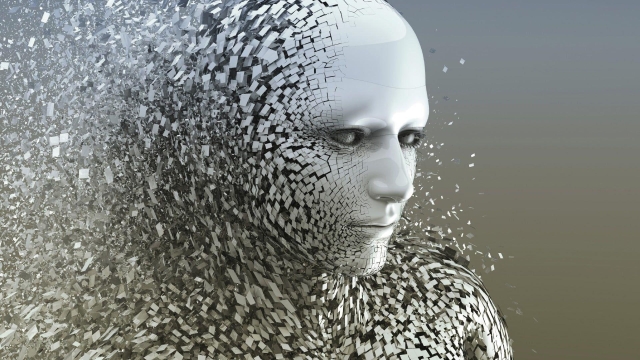
The Rise of Intelligent Machines: Unleashing the Power of Artificial Intelligence

In a world where technological advancements continue to shape our future, there is one field that stands out among the rest—artificial intelligence. From the pages of science fiction to the realities of the present day, AI has emerged as a revolutionary force, transforming the way we live, work, and interact with the world around us. With its ability to replicate and surpass human intelligence, artificial intelligence has ignited a new era of innovation, raising countless possibilities and unlocking a realm of potential that was once the stuff of dreams.
At its core, artificial intelligence is the development of intelligent machines that can carry out tasks, analyze data, and make decisions with the level of autonomy traditionally reserved for humans. Combining computer science, mathematics, and cognitive science, AI systems are designed to learn from experience, adapt to new information, and continuously improve their performance. Whether it is recognizing patterns, solving complex problems, or even engaging in natural language conversations, these intelligent machines are paving the way for groundbreaking advancements across various industries and sectors.
As the field of artificial intelligence continues its rapid growth, so too does our dependence on these intelligent machines. From virtual assistants that make our daily lives more convenient, to autonomous vehicles that promise safer and more efficient transportation, AI has become an integral part of our digital landscape. It is not just the tech giants and cutting-edge startups that are embracing this transformative technology—organizations of all sizes and across all sectors are recognizing the potential of AI to drive innovation, enhance productivity, and create new opportunities.
However, amidst all the excitement and promise, concerns and ethical considerations also arise. The rise of intelligent machines brings with it questions about the impact on jobs, privacy, and the potential for misuse. Balancing progress with responsible development becomes crucial as society explores the boundaries of artificial intelligence and its integration into our daily lives. While we navigate this uncharted territory, it is imperative that we not only understand the capabilities of AI but also actively shape its trajectory to ensure that it is harnessed for the benefit of humanity.
In this article, we will delve deeper into the world of artificial intelligence, exploring its origins, current applications, and future possibilities. We will examine the underlying technologies that make AI possible, discuss its impact on various industries, and shed light on the ethical considerations that accompany its rise. From intelligent robotics to machine learning algorithms, we will unravel the intricacies of this revolutionary field to better comprehend the power and potential of artificial intelligence in shaping our collective future. Join us on this enlightening journey as we delve into the unlimited possibilities that await us in the realm of intelligent machines.
Applications of Artificial Intelligence
In today’s rapidly advancing technological landscape, artificial intelligence (AI) is proving to be a revolutionary force across various industries. Its applications are wide-ranging, from improving customer service experiences to enhancing healthcare outcomes. Let’s explore some of the remarkable uses of AI.
Customer Support: Companies are leveraging AI to provide prompt and efficient customer support. Virtual assistants powered by AI algorithms can engage with customers in real-time, answering their queries and resolving issues. Through natural language processing, these intelligent machines can understand and respond to customers, creating a more personalized and seamless customer service experience.
Healthcare: AI is making significant strides in the healthcare sector, assisting doctors, researchers, and patients alike. In diagnostics, AI-enabled systems can analyze medical images and detect abnormalities with exceptional accuracy, aiding physicians in making quicker and more precise diagnoses. AI algorithms can also process vast amounts of patient data, uncovering patterns and trends that can lead to enhanced treatments and disease management.
Find Out MoreAutonomous Vehicles: The emergence of AI has paved the way for the development of self-driving cars. These intelligent machines are equipped with an array of sensors, cameras, and advanced algorithms that enable them to perceive their surroundings and make real-time decisions on the road. By leveraging AI, autonomous vehicles aim to improve road safety and efficiency while reducing human errors and traffic congestion.
The applications of artificial intelligence extend far beyond these examples, with AI playing a pivotal role in areas such as finance, manufacturing, agriculture, and more. As AI continues to evolve, we can expect even more innovative and transformative solutions that harness the power of intelligent machines for the benefit of society.
Challenges and Ethical Considerations
Artificial intelligence (AI) brings with it a host of challenges and ethical considerations that must be carefully examined. As we witness the rise of intelligent machines, it is important to address these issues to ensure the responsible and ethical deployment of AI technologies.
Unintended Bias: One significant challenge of AI lies in the potential for unintended bias within the algorithms that power these systems. AI algorithms are often trained on existing data, which can potentially contain biases present in society. If not addressed, this can perpetuate and amplify societal inequalities and biases in decision-making processes. It is essential to develop methods to detect and eliminate biases in AI systems to ensure fair and just outcomes for all.
Privacy and Data Security: The increasing use of AI relies heavily on the collection and processing of vast amounts of data. This raises concerns about privacy and data security. The use and storage of personal data, especially sensitive information, must be handled responsibly. Robust data protection measures need to be implemented to safeguard individuals’ privacy and prevent unauthorized access or misuse of personal data.
Accountability and Transparency: Another key consideration is the accountability and transparency of AI systems. As AI technologies become more sophisticated and autonomous, understanding the decision-making process becomes crucial. Transparency is essential to ensure that decisions made by AI systems can be explained, allowing for accountability and oversight. Moreover, clear guidelines and regulations need to be established to determine who is responsible when these systems make errors or decisions with significant consequences.
Addressing these challenges and ethical considerations is essential to shape the future of AI in a responsible and beneficial manner. By proactively tackling these issues, we can harness the power of artificial intelligence while ensuring that its impact is positive and equitable.
The Future of Artificial Intelligence
- Advancements in Artificial Intelligence:
With the rapid pace of technological innovation, the future of artificial intelligence holds tremendous promise. As researchers and experts delve deeper into the realms of machine learning and neural networks, we are witnessing remarkable advancements in AI capabilities. These breakthroughs are paving the way for intelligent machines that can not only perform complex tasks but also continuously learn and adapt to their surroundings. The future of artificial intelligence is characterized by a relentless pursuit of creating machines that possess human-like intelligence.
- Impact on Industries and Everyday Life:
Artificial intelligence is poised to revolutionize various industries and significantly impact our everyday lives. From healthcare and transportation to finance and entertainment, the applications of AI are virtually limitless. Within the healthcare sector, AI-powered systems can assist doctors in diagnosing diseases quicker and more accurately, leading to improved patient care. In transportation, self-driving cars powered by AI technology have the potential to reduce accidents and enhance transportation efficiency. Furthermore, in the realm of entertainment, AI algorithms are being used to create personalized content recommendations, resulting in a more tailored user experience.
- Ethical Considerations and the Need for Regulation:
While the advancements in artificial intelligence may hold great promise, they also raise important ethical considerations. As AI becomes increasingly sophisticated, questions arise about privacy, data security, and the potential for biased decision-making. There is a growing need for regulations and guidelines to ensure that AI systems are developed and used responsibly. Striking a balance between innovation and addressing these ethical concerns will be crucial in shaping the future of artificial intelligence. As a society, we must proactively address these challenges to harness the full potential of AI in a manner that benefits humanity as a whole.



